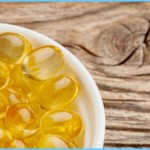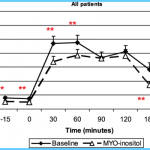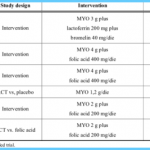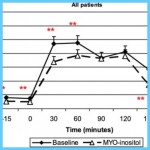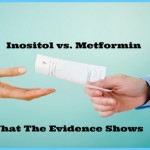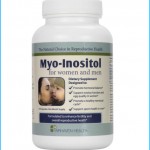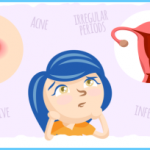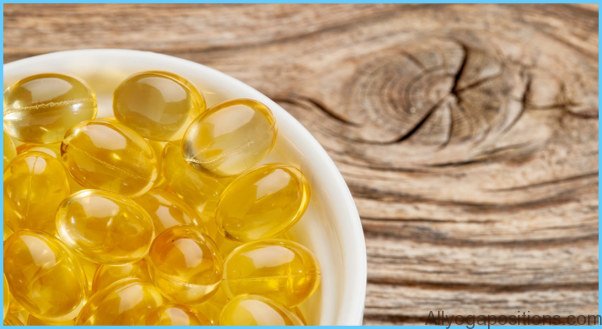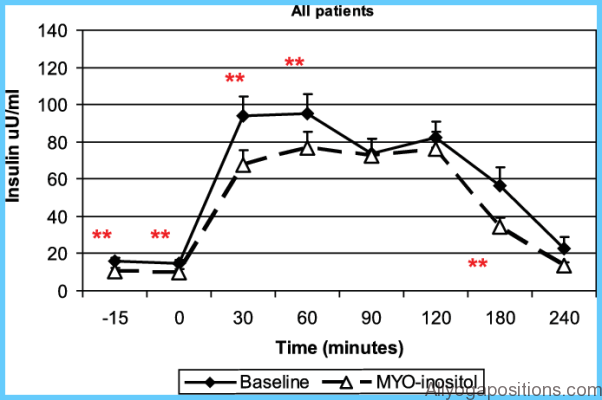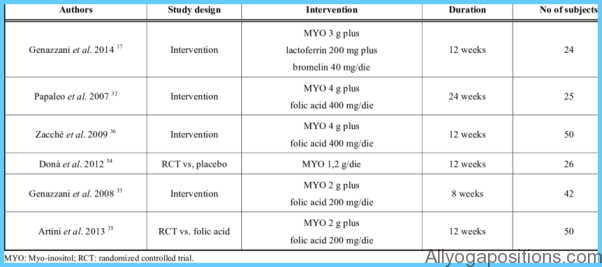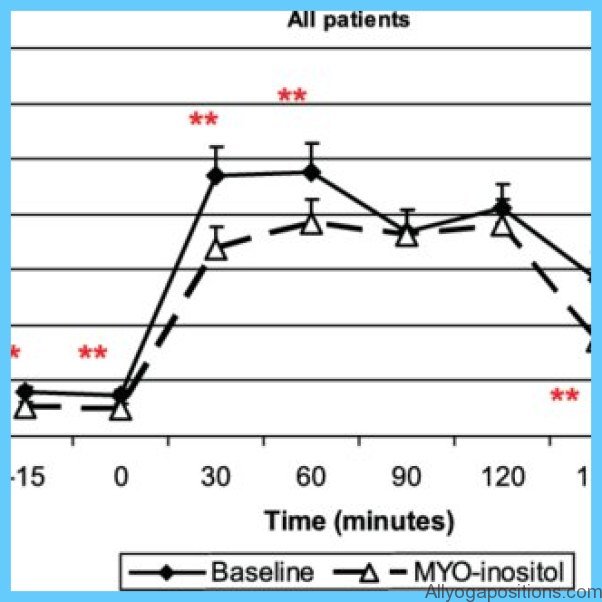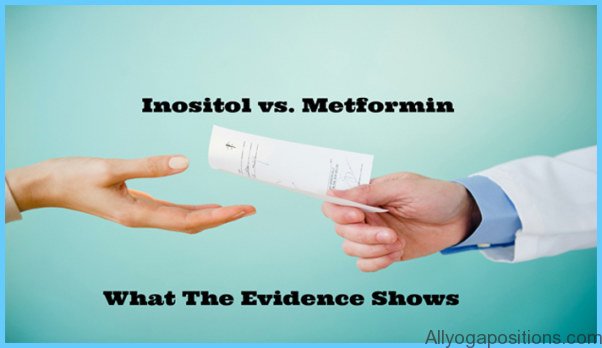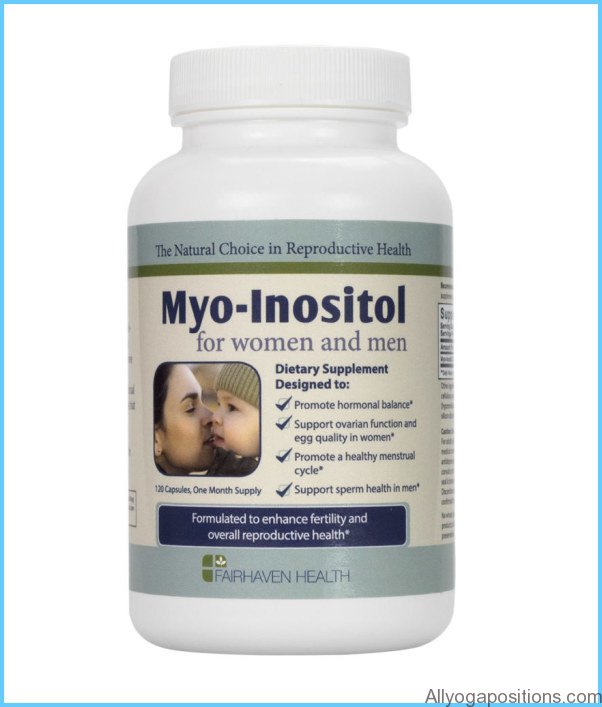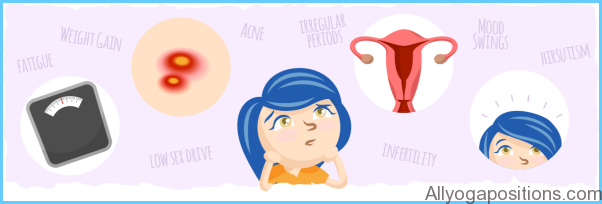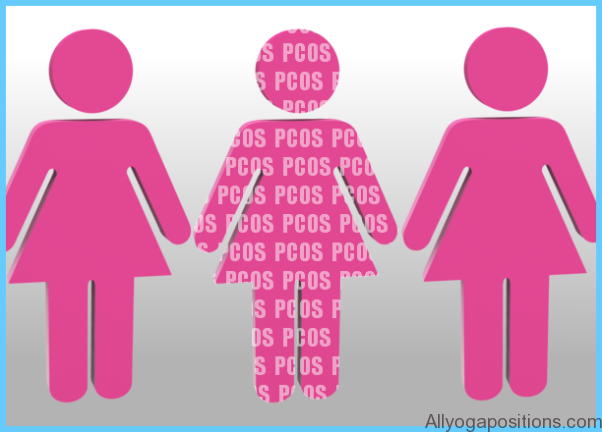Although not an official vitamin, this natural compound is closely related to the B vitamin family. Inositol is found in foods mainly as phytic acid, a fibrous compound. Good sources include citrus fruits, whole grains, legumes, nuts and seeds. When you eat these foods, bacteria in your intestine liberate inositol from phytic acid.
Once in the body, inositol is an essential component of cell membranes. It promotes the export of fat from cells in the liver and intestine. Supplements of inositol are thought to improve insulin sensitivity and have therefore been used to treat symptoms of PCOS. In one study of 44 obese women, 1200 milligrams of inositol taken once daily for six to eight weeks decreased blood triglycerides and testosterone levels, reduced blood pressure and caused ovulation.6 Previous studies suggest that people with insulin resistance and type 2 diabetes might be deficient in inositol.
Inositol supplements are hard to find since few companies manufacture them. In the United States, I have found the following products readily available:
Inositol for Polycystic Ovary Syndrome (PCOS)
• Inositol tablets (Puritan’s Pride): 650 milligrams inositol per tablet
• Inositol powder (Puritan’s Pride, Source Naturals): 600 milligrams per 1/4 teaspoon (mix into water)
• IP6 Powder (Jarrow Formulas): 1 scoop contains 1.2 grams of inositol
Based on research conducted in women with PCOS, a dose of 1200 milligrams taken once daily is warranted. No adverse effects have been reported. Some brands have added chromium.
The Bottom Line…
Leslie’s recommendations for managing polycystic ovary syndrome (PCOS)
1. If you are overweight, embark on a weight-loss program. Losing weight is a cornerstone in the management of PCOS. Enlist the help of a professional. Contact the American Dietetic Association (www.eatright.org) for a referral to a nutritionist in your community.
• To get you started losing weight, practice my tips in chapter 2. Remember that portion size counts, whether a food is fat-free or not!
• Follow a diet that is low in carbohydrates, but do not eliminate all carbohydrate foods. This will help women with insulin resistance lose weight more effectively.
2. Choose low glycemic index carbohydrate foods.
3. Increase your intake of calcium and vitamin D, especially if you are taking a gonadotropin-releasing hormone drug such as Lupron® or Synarel®. These medications promote an estrogen deficiency that can cause bone loss.
4. Buy a calcium supplement that contains ipriflavone, a synthetic isoflavone manufactured from a natural compound found in soybeans. Take 150 to 200 milligrams three times daily. Choose a product that contains a high-quality form of ipriflavone called Ostivone™.
5. Consider taking a 200-microgram chromium supplement if you have insulin resistance.
6. Consider supplementing your daily diet with 1200 milligrams of inositol, a relative of the B vitamins.
7. Instead of chromium and inositol, you might consider taking the herbal remedy ginseng to help improve insulin sensitivity and blood-sugar levels. Start by taking 100 milligrams of Asian ginseng once daily. Look for a product that has the G115 statement on the label.

